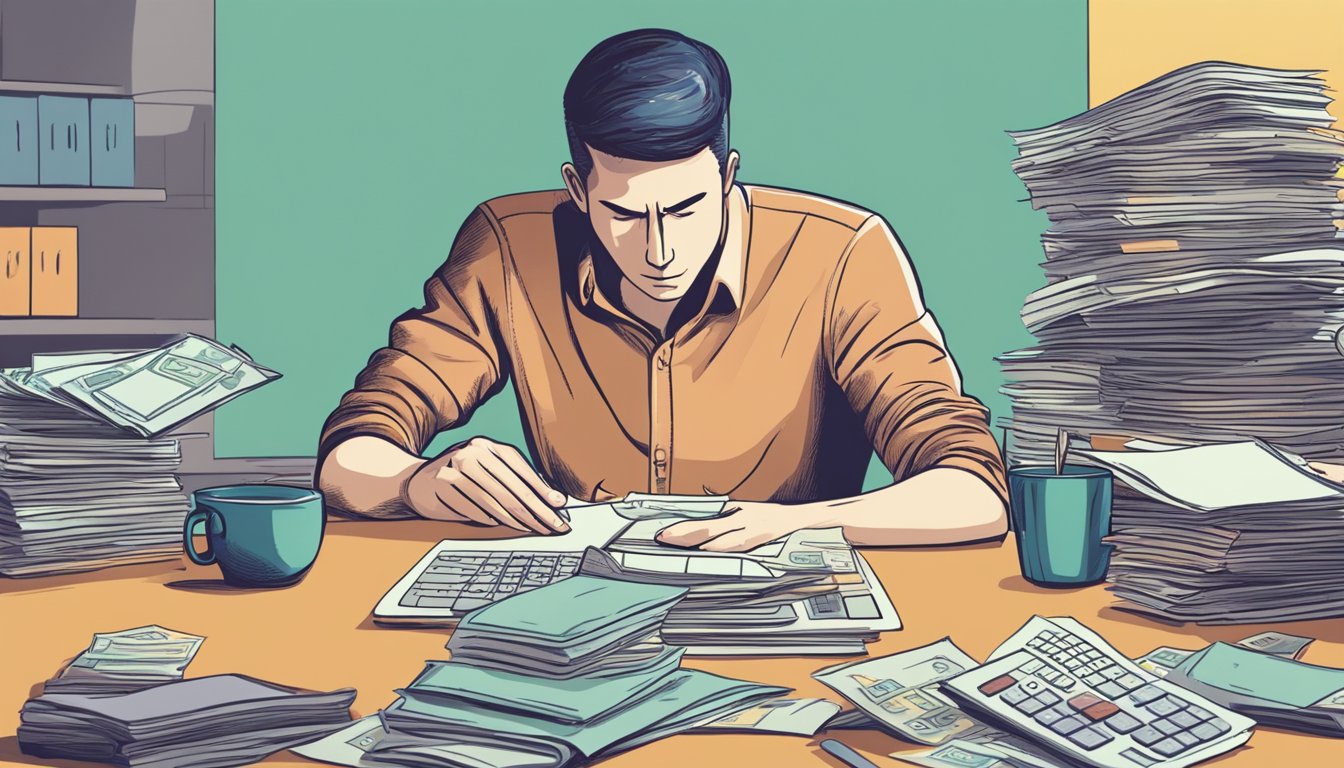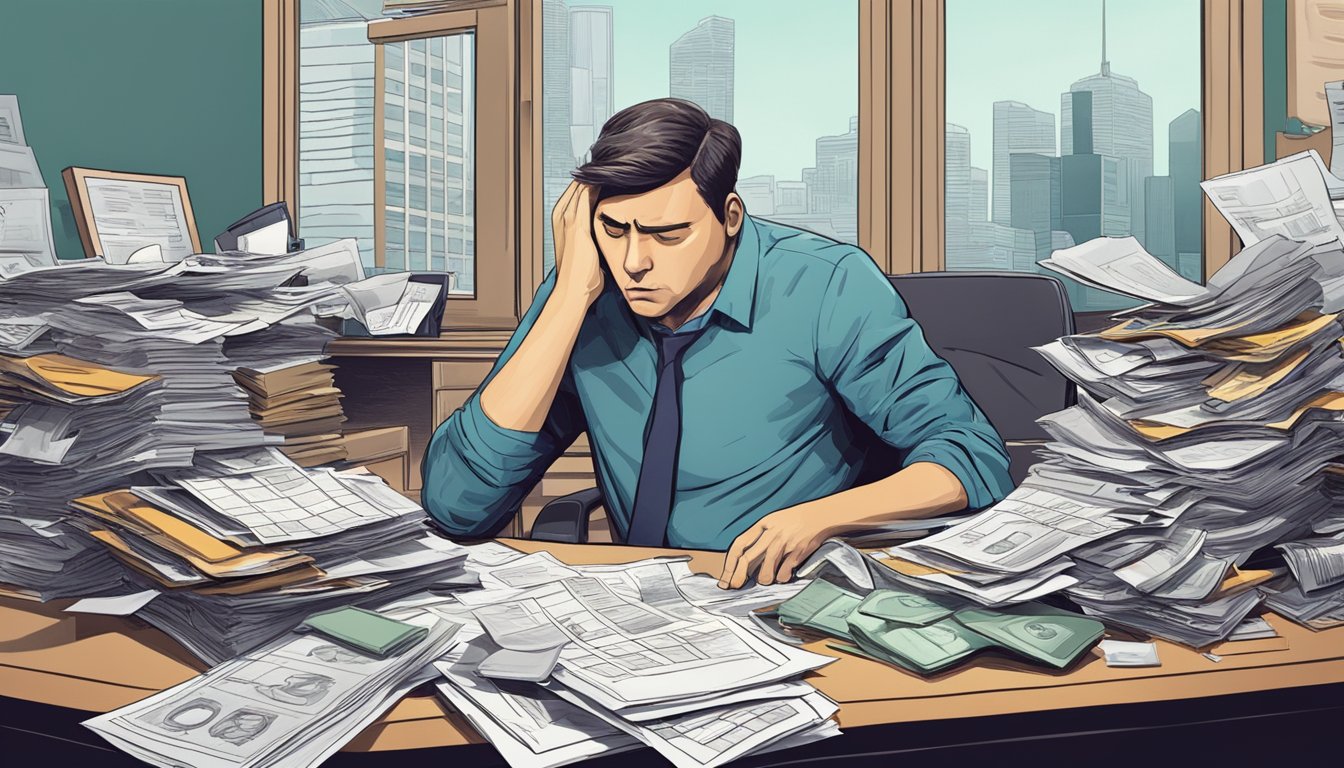If you find yourself unable to repay a personal loan, you’re not alone. It can happen to anyone, and it’s important to understand the challenges that come with personal loan repayment. Personal loans can be an excellent way to consolidate debt or finance a large expense, but they can also be difficult to manage if you’re not careful.

One of the biggest challenges of personal loan repayment is keeping up with the payments. If you miss a payment, your credit score can take a hit, and you may be charged late fees or penalties. Additionally, if you continue to miss payments, you may be at risk of defaulting on the loan, which can have serious consequences. It’s important to understand your options for managing personal loan repayment difficulties, so you can avoid these pitfalls and get back on track.
If you’re struggling to repay a personal loan, there are strategies you can use to manage the situation. These may include negotiating with your lender for a more manageable payment plan, seeking assistance from a credit counselling service, or exploring debt consolidation options. By taking proactive steps to manage your personal loan repayment difficulties, you can avoid the negative consequences of defaulting on your loan and get back on the path to financial stability.
Key Takeaways
- Personal loan repayment can be challenging, but there are strategies you can use to manage the situation.
- Missing payments can have serious consequences, including damage to your credit score and late fees or penalties.
- By taking proactive steps to manage your personal loan repayment difficulties, you can avoid defaulting on your loan and get back on the path to financial stability.
Understanding Personal Loan Repayment Challenges

If you’re struggling to repay your personal loan, you’re not alone. Many people face challenges when it comes to making loan payments, and it’s important to understand the consequences of defaulting on a personal loan. In this section, we’ll explore some of the challenges you may face when repaying a personal loan and provide tips for managing your finances.
Consequences of Defaulting on a Personal Loan
When you default on a personal loan, it can have serious consequences. Not only can it damage your credit score, but it can also result in legal action being taken against you. This can include wage garnishment, seizure of assets, and even bankruptcy.
To avoid defaulting on your loan, it’s important to assess your financial situation and create a repayment plan that works for you. This may involve negotiating with your lender to adjust your repayment schedule or seeking financial assistance from a credit counseling agency.
Assessing Your Financial Situation
To create a repayment plan that works for you, it’s important to assess your financial situation. This includes looking at your income, budget, and savings to determine how much you can afford to pay towards your loan each month.
Start by reviewing your monthly income and subtracting your financial obligations, such as rent, utilities, and other bills. This will give you an idea of how much money you have left over each month to put towards your loan payments.
Next, review your budget to see where you can cut back on expenses. This may involve reducing your spending on non-essential items, such as dining out or entertainment, to free up more money for loan payments.
Finally, consider your savings and whether you have any emergency funds that can be used to make loan payments. While it’s important to have savings for unexpected expenses, it may be necessary to dip into these funds to avoid defaulting on your loan.
By assessing your financial situation and creating a realistic repayment plan, you can avoid defaulting on your personal loan and protect your credit score. Remember, if you’re struggling to make loan payments, don’t hesitate to reach out to your lender for assistance.
Strategies for Managing Loan Repayment Difficulties

If you’re struggling to repay a personal loan, there are several strategies you can use to manage your debt. In this section, we’ll explore some of the most effective ways to negotiate with creditors, explore debt relief options, and improve your personal financial management.
Negotiating with Creditors
The first step in managing loan repayment difficulties is to negotiate with your creditors. This can involve contacting your lender directly to explain your situation and request a payment plan, settlement, or other form of assistance. Be prepared to provide information about your income, expenses, and other debts, as well as any extenuating circumstances that may have led to your financial difficulties.
Exploring Debt Relief Options
If negotiating with your creditors doesn’t work, you may want to explore debt relief options such as debt consolidation or credit counselling. Debt consolidation involves taking out a new loan to pay off your existing debts, while credit counselling provides advice and support for managing your finances and repaying your debts.
Improving Personal Financial Management
Another strategy for managing loan repayment difficulties is to improve your personal financial management. This can involve creating a budget, opening a savings account, and finding ways to earn extra money. By taking control of your finances and making smart decisions about how you spend your money, you can reduce your debt and avoid future financial difficulties.
In conclusion, if you’re struggling to repay a personal loan, there are several strategies you can use to manage your debt. By negotiating with your creditors, exploring debt relief options, and improving your personal financial management, you can take control of your finances and get back on track to financial stability.
Frequently Asked Questions

What are the consequences of defaulting on a personal loan?
If you default on a personal loan, you may face several consequences, including late payment fees, increased interest rates, and damage to your credit score. Additionally, the lender may take legal action against you to recover the outstanding loan amount.
Is imprisonment a possible outcome for failing to repay a personal loan?
No, imprisonment is not a possible outcome for failing to repay a personal loan in the UK. However, the lender may take legal action against you to recover the outstanding loan amount.
What options are available if you’ve lost your job and can’t pay your personal loan?
If you’ve lost your job and can’t pay your personal loan, you should contact your lender immediately. They may be able to offer you a repayment plan or a temporary payment holiday. Alternatively, you could consider debt consolidation or debt management plans.
What’s the term for not being able to meet loan repayment obligations?
The term for not being able to meet loan repayment obligations is “defaulting.”
How does non-repayment of a personal loan affect your financial standing in the UK?
Non-repayment of a personal loan can have a significant impact on your credit score and financial standing in the UK. It may make it difficult for you to obtain credit in the future, and you may be charged higher interest rates on any credit you do obtain.
What legal repercussions might you face for not repaying a personal loan in Singapore?
If you do not repay a personal loan in Singapore, you may face legal action from the lender. This could result in a court judgment against you, which may affect your credit rating and make it difficult for you to obtain credit in the future.




